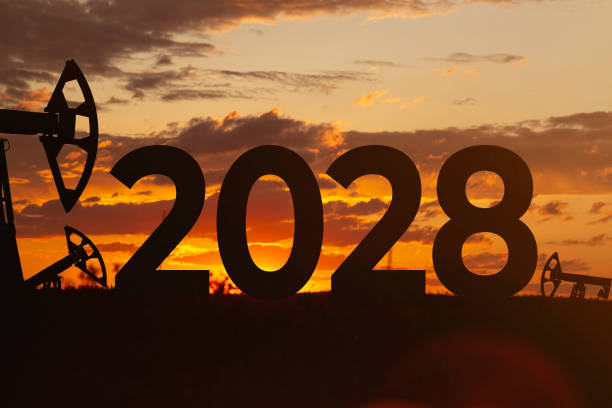Every day, people across the U.S. receive unexpected calls from numbers they don’t recognize. One number that keeps popping up lately is 202 873 2990. Some people report missed calls, others hear silence after answering, and a few are met with automated messages.
So what exactly is 202 873 2990? Is it a real business contact, a government survey line, or another scam attempt? With phone fraud and robocalls at an all-time high, understanding where these calls come from—and how to deal with them—has become essential for anyone who owns a smartphone.
This guide takes a deep dive into the mystery of 202 873 2990, explores the technology that allows such numbers to appear on your screen, and outlines smart steps to keep your privacy safe.
Where Does 202 873 2990 Originate?
The 202 area code belongs to Washington, D.C., one of the most recognized prefixes in the United States. It’s often associated with government agencies, advocacy groups, nonprofit organizations, and corporate offices. However, the appearance of a Washington number doesn’t automatically mean the call is official.
Because of VoIP (Voice over Internet Protocol) and caller-ID spoofing, anyone can mask their true identity by displaying a false number. A scammer operating from another country can make it look as if the call is coming from the capital. That’s why 202 873 2990 could belong to a legitimate office—or to someone pretending to be one.
Possible Reasons You’re Getting Calls from 202 873 2990
Let’s break down the most common explanations, from benign to potentially fraudulent:
1. Routine Business or Survey Outreach
Some legitimate research companies and political organizations use D.C. numbers for national polling or customer-experience surveys. If you recently filled out an online form, signed up for a campaign newsletter, or participated in market research, 202 873 2990 might be connected.
2. Telemarketing and Promotional Offers
Marketing firms often rotate through thousands of numbers to bypass spam filters. Calls from 202 873 2990 could promote insurance, debt consolidation, or credit-repair services. While such calls aren’t necessarily scams, they can still violate “Do Not Call” rules if you never consented.
3. Automated Robocalls or Scams
The majority of complaints online describe 202 873 2990 as a silent or automated call. In these cases, the number is likely used by robocall software testing whether lines are active. Once a call is answered, your number can be sold to spammers as “verified.”
4. Government-Impersonation Schemes
Scammers frequently pose as officials from the IRS, Social Security Administration, or law-enforcement agencies. They exploit the 202 area code to seem credible. If you hear threats about unpaid taxes or legal action from 202 873 2990, hang up immediately—no federal office initiates contact by phone for such matters.
How to Investigate 202 873 2990 Safely
Before deciding whether to answer or block the call, perform a few simple checks:
Use Trusted Reverse-Lookup Services
Websites such as TrueCaller, Hiya, and WhitePages maintain public databases that list user feedback. Searching 202 873 2990 can reveal whether others have flagged it as spam or associated it with a legitimate business.
Look for Patterns on Community Forums
Consumer boards and Reddit threads often document ongoing scam campaigns. Multiple reports about the same number within a short timeframe indicate automated dialing activity rather than a single organization.
Check If It’s on the Do Not Call Registry
If your phone is registered and you’re still getting promotional calls from 202 873 2990, it’s likely a violation. You can report the number directly to the Federal Trade Commission (FTC).
Recognizing Warning Signs of Fraudulent Calls
Phone scams have evolved, but their tactics remain familiar. If any of the following occurs when you answer 202 873 2990, treat it as a red flag:
-
Urgent language demanding immediate payment or personal details.
-
Requests for gift cards, cryptocurrency, or wire transfers.
-
Pre-recorded messages promising refunds or claiming your account is suspended.
-
Caller refuses to verify their identity or provide written documentation.
Even seasoned consumers can get caught off guard when a caller sounds authoritative. Remember: no legitimate agency will threaten you or pressure you to act on the spot.
Steps to Take If You Receive a Call from 202 873 2990
-
Don’t Engage Immediately
Let unknown numbers ring through. If the caller has real business, they’ll leave a message or follow up with email. -
Use Voicemail to Screen Calls
Genuine representatives usually introduce themselves clearly in voicemail. Scammers rarely do. -
Block and Report
Every smartphone includes a “Block” option. For persistent spam, also file a report with your carrier—many carriers compile blacklists to protect users. -
Inform Others
Sharing your experience online helps alert others. A quick review saying “202 873 2990 called, possible scam” contributes to crowd-sourced protection.
If You Accidentally Shared Information
Don’t panic—take these actions right away:
-
Contact your bank or credit card provider to flag potential fraud.
-
Change your passwords for any account that may be compromised.
-
Place a fraud alert on your credit file through Experian, Equifax, or TransUnion.
-
File a report at IdentityTheft.gov if sensitive data (like a Social Security number) was given.
Quick responses minimize damage and create an official record if further problems arise.
Why Scammers Choose the 202 Area Code
Washington, D.C. carries an aura of authority. By using numbers like 202 873 2990, fraudsters exploit public trust in the capital. When you see a 202 prefix, you might instinctively think “government.”
Cyber-criminal groups purchase huge blocks of virtual 202 numbers or spoof existing ones. Since caller-ID spoofing tools are inexpensive, scammers can rotate through hundreds of variations in a single day, making enforcement extremely challenging.
Technologies That Fight Spoofed Numbers
To combat abuses linked to numbers such as 202 873 2990, telecom providers have rolled out STIR/SHAKEN authentication. This system digitally verifies a call’s origin before it reaches your phone. When working properly, it displays “Verified Caller” next to legitimate numbers.
Still, not all networks fully support the protocol yet, so vigilance remains your first defense.
Preventive Measures to Reduce Future Spam Calls
-
Enable Built-In Spam Filters on Android or iOS.
-
Avoid Answering Unknown Numbers entirely.
-
Use Third-Party Blocking Apps like Nomorobo or RoboKiller for automatic protection.
-
Opt Out of Data Sharing when signing up for contests or newsletters—these lists often get sold to marketers.
-
Educate Family Members, especially seniors, who are prime targets for phone scams.
Taking a few minutes to configure these settings can drastically cut down the number of nuisance calls you receive each week.
Legal Rights and Consumer Protection
The Telephone Consumer Protection Act (TCPA) and the Telemarketing Sales Rule give U.S. consumers power over unsolicited communications. If 202 873 2990 continues to contact you after you’ve asked them to stop, you can pursue statutory damages—up to $500 per violation (or $1500 for willful misconduct).
Filing a complaint through the FTC’s Do Not Call portal contributes to enforcement actions that shut down large robocall operations.
Real User Reports About 202 873 2990
Online discussions show varied experiences:
-
Some users claim the number belonged to a survey company asking about energy usage.
-
Others report robotic messages referencing “federal tax issues.”
-
A few received repeated silent calls, suggesting a predictive dialer test.
The inconsistency itself is revealing: genuine businesses rarely change their script or purpose so drastically. Such mixed feedback supports the theory that 202 873 2990 is used by multiple entities—or spoofed repeatedly.
Understanding the Bigger Picture: Spam Call Trends in 2025
According to the latest data from YouMail and Hiya, Americans receive over 50 billion robocalls annually. The majority originate from spoofed numbers, with Washington D.C. among the top ten most faked area codes.
Carriers and regulators are making progress, but the cat-and-mouse nature of technology means that vigilance will always be necessary. Numbers like 202 873 2990 are symptoms of a broader digital arms race between scammers and security systems.
Practical Checklist for Handling Unknown Numbers
Before you ever pick up another unfamiliar call:
-
Pause and Evaluate – Do you expect a call from D.C.?
-
Search the Number Online – Enter “202 873 2990” in your browser.
-
Check for Verified Badges – Some smartphones display a shield icon for confirmed businesses.
-
Block After Two Attempts – If the same number calls twice without leaving a message, assume it’s non-essential.
-
Keep Software Updated – Firmware patches often include security improvements for caller verification.
Conclusion: Stay Alert and Informed About 202 873 2990
Receiving a call from 202 873 2990 doesn’t automatically mean danger—but it does warrant caution. With scams growing more sophisticated, knowledge truly is your best shield.
Always verify, never share personal details over unsolicited calls, and use the many free tools available to protect your privacy. By staying alert and proactive, you can prevent nuisance numbers like 202 873 2990 from wasting your time or compromising your information.








Leave a Reply